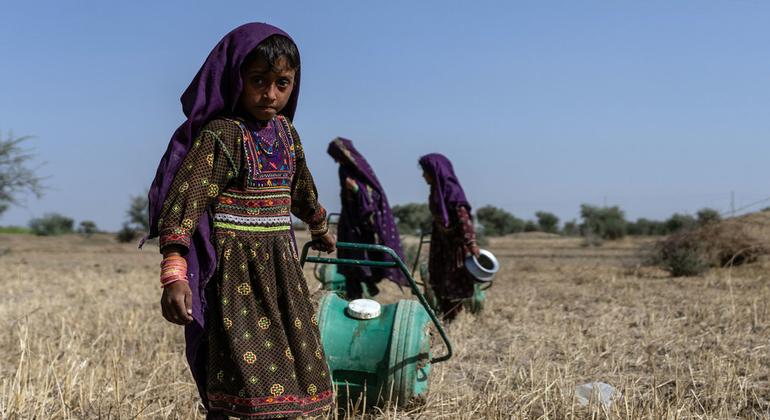The President of the Economic and Social Council (ECOSCOC), Bob Rae, recently hosted a meeting emphasizing the importance of promoting equal rights for women and young girls. Rae highlighted that advocating for gender equality is not just an official commitment of the United Nations but also a personal one that requires active engagement and combat against sexism, hatred, and discrimination.
During the meeting, Rae encouraged the young audience to be vocal and take a stand to create positive change in the world. He urged them to challenge societal norms and attitudes that perpetuate gender inequality and limit the opportunities for women and girls. Rae emphasized the power of young voices in driving progress and shaping a more inclusive and equitable society.
The theme of this year’s meeting, “Girls’ Vision for the Future,” underscored the urgent need for action driven by the voices and perspectives of girls worldwide. The event aimed to amplify the voices of girls and empower them to articulate their aspirations, concerns, and visions for a more equitable and sustainable future.
UN Secretary-General António Guterres also highlighted the untapped potential of over 1.1 billion girls worldwide, emphasizing their limitless capabilities and contributions to society. However, Guterres expressed concern about the persistent challenges and setbacks faced by girls, particularly in the context of global crises such as climate change, conflict, and poverty.
Despite the global commitment to the Sustainable Development Goals (SDGs), progress towards achieving gender equality, as outlined in SDG 5, remains slow and at risk. The current generation of girls continues to face barriers to education, healthcare, and economic opportunities, which hinder their ability to reach their full potential and contribute meaningfully to society.
One of the key issues highlighted during the meeting was the persistent gap in access to education for girls worldwide. According to UN Women, 119.3 million girls are out of school globally, and nearly 40% of young women do not complete upper-secondary education. The lack of educational opportunities for girls not only limits their personal growth but also hinders the overall progress towards achieving gender equality and sustainable development.
Child marriage was another critical issue raised during the meeting. Despite global efforts to eradicate child marriage, millions of girls continue to be married off before reaching adulthood. The UN Department of Economic and Social Affairs (DESA) reported that a girl born today will be 68 years old before child marriage is eliminated, highlighting the urgent need for coordinated action to address this harmful practice.
The digital gender divide and the risks faced by girls online were also discussed during the meeting. With an increasing reliance on digital technologies in various aspects of life, it is essential to ensure that girls and women have equal access to digital skills and resources. Closing the gender digital gap and promoting online safety for girls are crucial steps towards empowering them to fully participate in education, employment, and civic life.
Activists and advocates emphasized the importance of creating safe online spaces for girls and ensuring that gender equality is embedded in digital strategies and initiatives. The Global Digital Compact and the Pact for the Future were identified as key frameworks for breaking down barriers in science, technology, and innovation while promoting gender equality and inclusion in the digital sphere.
The meeting also highlighted the agency and resilience of girls, emphasizing their innate abilities and aspirations for a better future. Secretary-General Guterres underscored the importance of listening to and supporting girls in realizing their visions for a more equitable and sustainable world. He called for greater investments in girls’ education, healthcare, and empowerment to unlock their full potential and create a more inclusive society.
In conclusion, the meeting hosted by ECOSCOC and led by President Bob Rae underscored the urgent need to prioritize the rights and well-being of women and girls worldwide. By amplifying the voices of girls and empowering them to advocate for their rights and aspirations, we can drive meaningful change and build a more equitable and inclusive world for all. The commitment to gender equality and the empowerment of girls must be upheld at all levels of society, from grassroots activism to global policy-making, to ensure a brighter future for generations to come.









